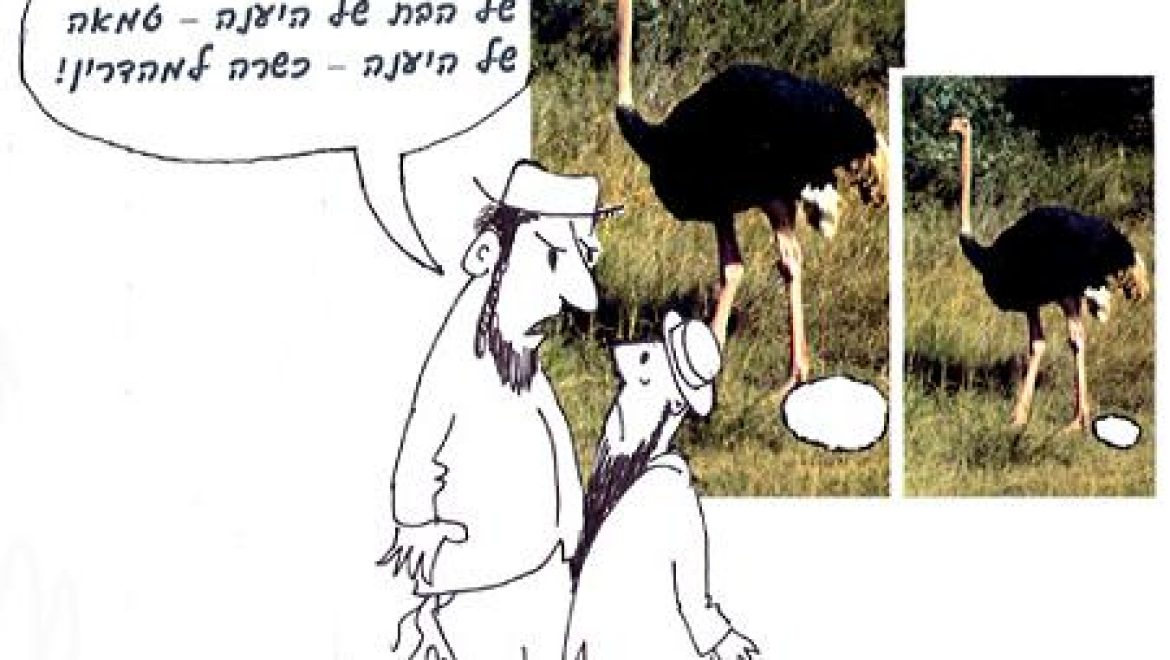
The Torah forbids the eating of impure birds. It is written, “And these [are they which] you shall hold as abomination among the fowls; they shall not be eaten, they [are] an abomination: the eagle, and the vulture…and the ostrich…” (Leviticus 11:13-16). But the eggs of these forbidden birds are not explicitly prohibited. The sages suppose that one is forbidden to eat the eggs of the impure bird, and so ask: how do we know, from the Torah, that they are forbidden? Answer: “And the ostrich (bat haya’anah). Does the ya’anah have a daughter (bat)? You are forced to admit that the Scriptures meant to forbid the egg of the ostrich, which is the daughter of the ya’anah. The scholars asked: Might that not be the name of the bird: bat haya’anah> Answer: Since in a different verse the name ya’anim is mentioned alone, “as ya’anim in the desert” (Lamentations 4:3) — without the addition of “daughter” — meaning that the bird’s name is ya’anah and not bat-ya’anah. The scholars continued to question. Is it not written “I will make a wailing like the jackals and a mourning like benot-ya’anah” (Mica 1:8). Do eggs mourn? You are forced to say that bat ya’anah is the bird’s name. Answer: the phrase “mourning like benot-ya’anah” means mourning like an ostrich mourns its children. The scholars went on to ask: Is it not written “And the benot-ya’anah will dwell there” (Isaiah 13:21). Do eggs dwell? You are forced to say that the bird’s name is bat ya’anah. Answer: The verse means “as an ostrich resides with its children.” The scholars then asked: Is it not written “The beast of the field will honor Me, the jackals and benot-ya’anah” (Isaiah 43:20). Do eggs sing praise and give honor? You are forced to say that the bird’s name is bat-ya’anah. From this question the scholars concluded that the bird actually has two names, ya’anah and bat ya’anah. The verse in the Torah “And bat haya’anah…” (Leviticus 11:13-16) refers to the bird’s eggs, for it is written as two words. The scholars asks whether we should interpret the name Kadar Laomer, which is also written as two words, as two names. (In our version of the Torah text the name is written as a single word, Kadarlaomer, in contrast to what is implied by this gemara.) Answer: the word combination bat haya’anah is written by the scribe as two words on two lines, so we interpret it as something other than the name of the bird, as the bird’s eggs. The word combination Kadar Laomer is written as two words, but on a single line, and so it is seen as a single name.
(Babylonian Talmud, Tractate Chulin 64b-65a)
